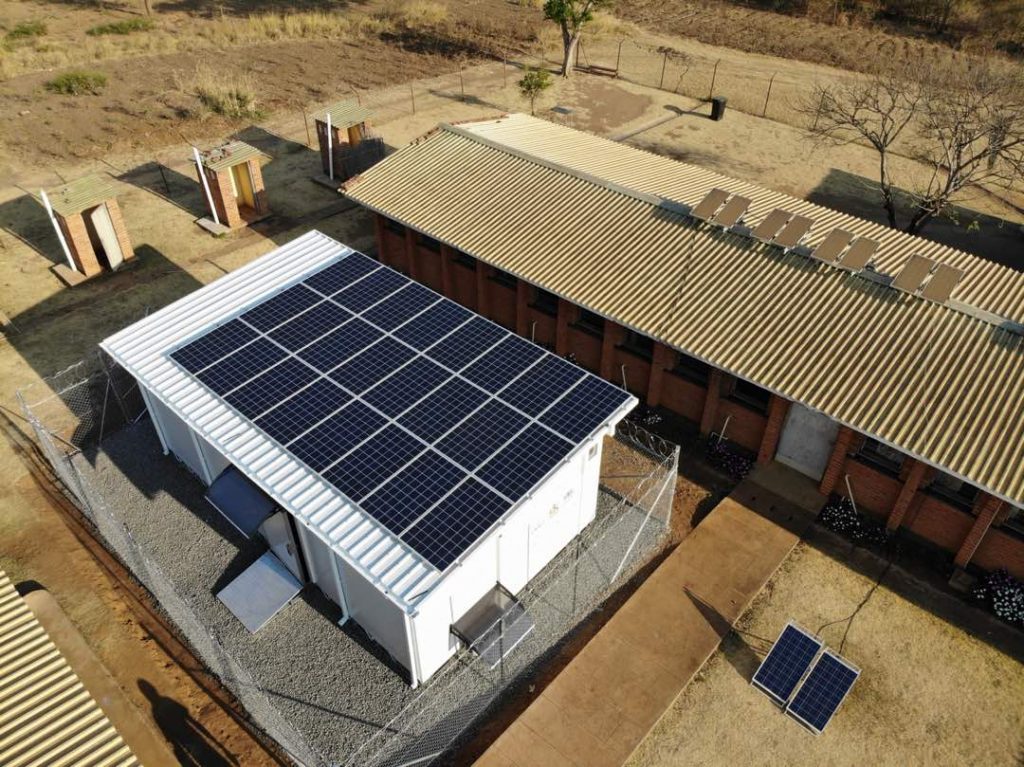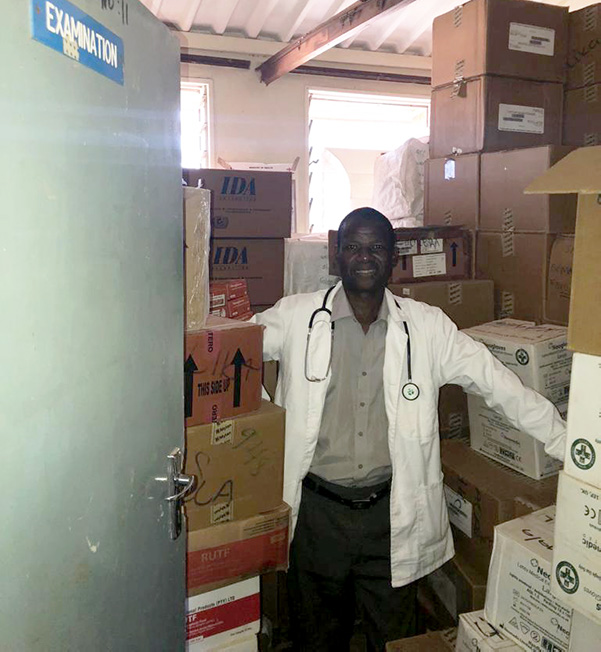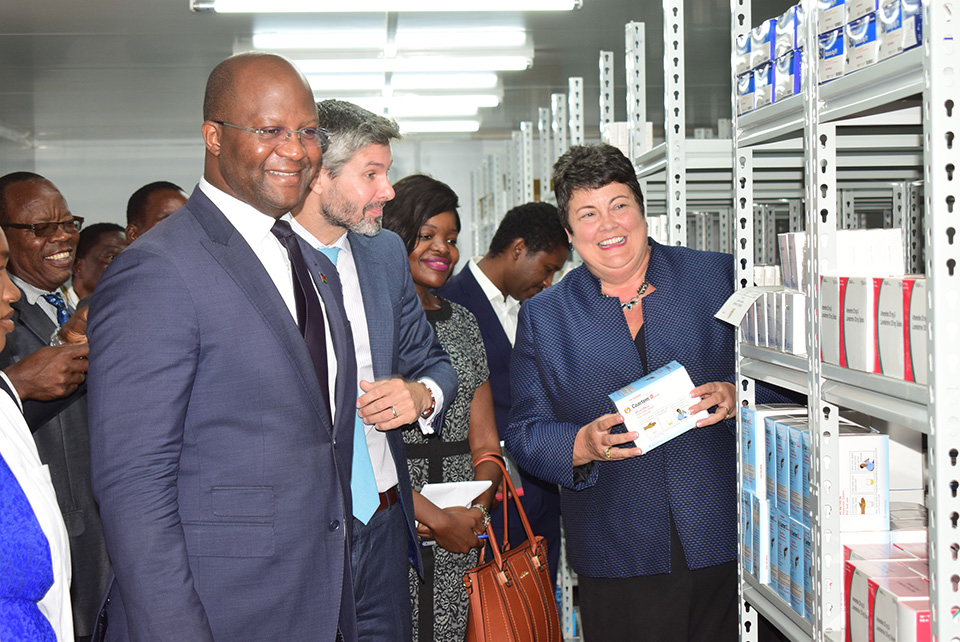For years, the 10-square meter storage room at the Likangala Health Center in Zomba, Malawi, was simply too small to contain the supplies needed to serve the surrounding population of 45,000.
The medications, tests, and other supplies ended up in other places around the health center, lining hallways, stuffed into offices, and even filling the exam room. Not having commodities in secured spaces put them at risk for theft. And with supplies stacked to the ceiling in various locations, the pharmacy assistant had trouble keeping accurate inventory records and following best practices such as First Expired, First Out (FEFO).
All that changed with the addition of a 75-square meter prefabricated pharmacy storage unit. “I’m now able to properly examine my patients since all the cartons of medicines in the examination room have been removed, thanks to the new pharmacy,” said Hezekeiah Mwale, facility head at Likangala.
The Likangala Health Center was one of 238 health facilities across Malawi to receive a prefabricated pharmacy storage unit in 2018. With support from PEPFAR, the U.S. President’s Malaria Initiative, and the United Kingdom’s Department for International Development (DFID) the $18 million endeavor added more than 14,000 square meters of quality storage space to Malawi’s health facilities. The units’ design includes enhanced passive temperature control capabilities to ensure minimal use of air conditioning.
This 2018 effort was a continuation of an earlier $8.3 million collaboration between the governments of Malawi, the U.S. and the U.K. to procure and install 115 prefabricated storage units in 106 health facilities. The need for these units was revealed in a 2014 comprehensive assessment that indicated that 77 percent of public health facilities in Malawi lacked adequate storage space for health commodities.
Given that almost half of the new storage units installed at health facilities are not connected to the national electric grid, solar power has been added to 117 units, adding a cumulative daily production of roughly 2.4 megawatts of power to the energy sector in Malawi.
A monitoring system allows district- and central-level Ministry of Health staff to view all solar sites through a web-based portal and receive data for decision making. One of the critical components of the monitoring system is the alert system, which provides an added layer of security. Designated individuals will receive a text and/or email alert if a solar panel breaks, a door is opened during certain hours, or back-up batteries are tampered with.
“This activity will provide secure and reliable storage facilities which will reduce theft and stock management challenges at health facilities,” said Malawi’s Minister of Health Atupele Muluzi during the commissioning of the newest units on November 19, 2018. He also thanked the American and British people for this support to the people of Malawi.
During the same event, U.S. Ambassador to Malawi Virginia Palmer said, “The units are an important demonstration of the U.S. and U.K.’s great partnership with Malawi.” Ambassador Palmer says the units will help the medical personnel deliver effective health services.
Read more about the prefabricated units here.



